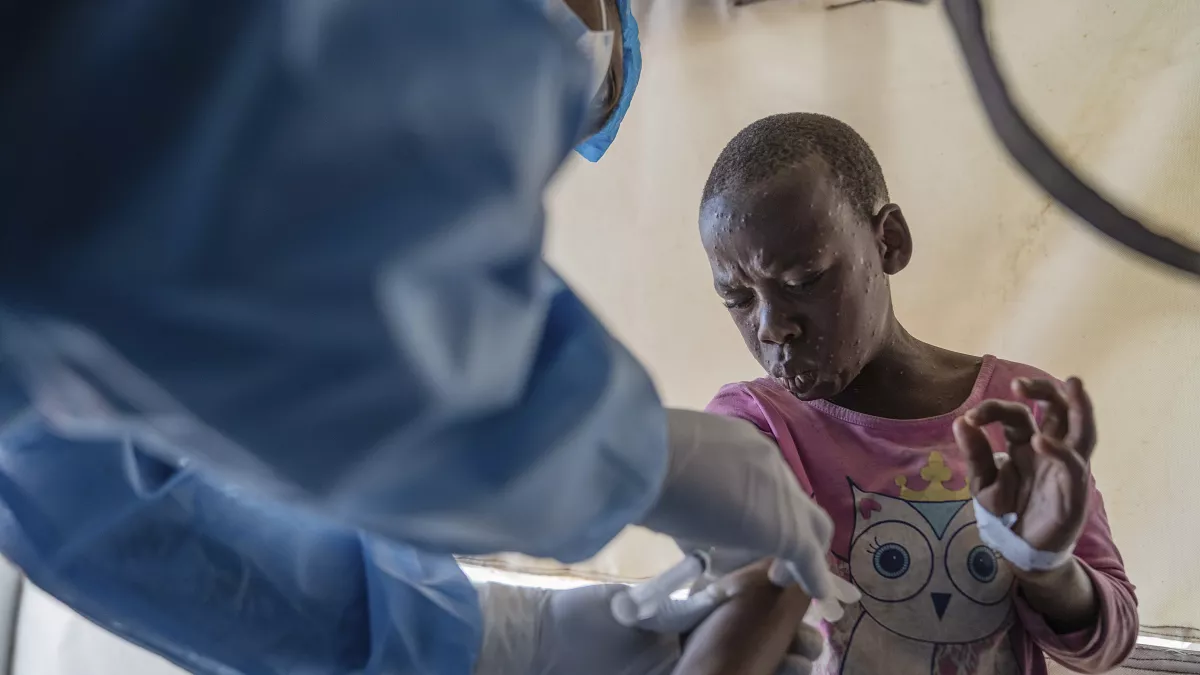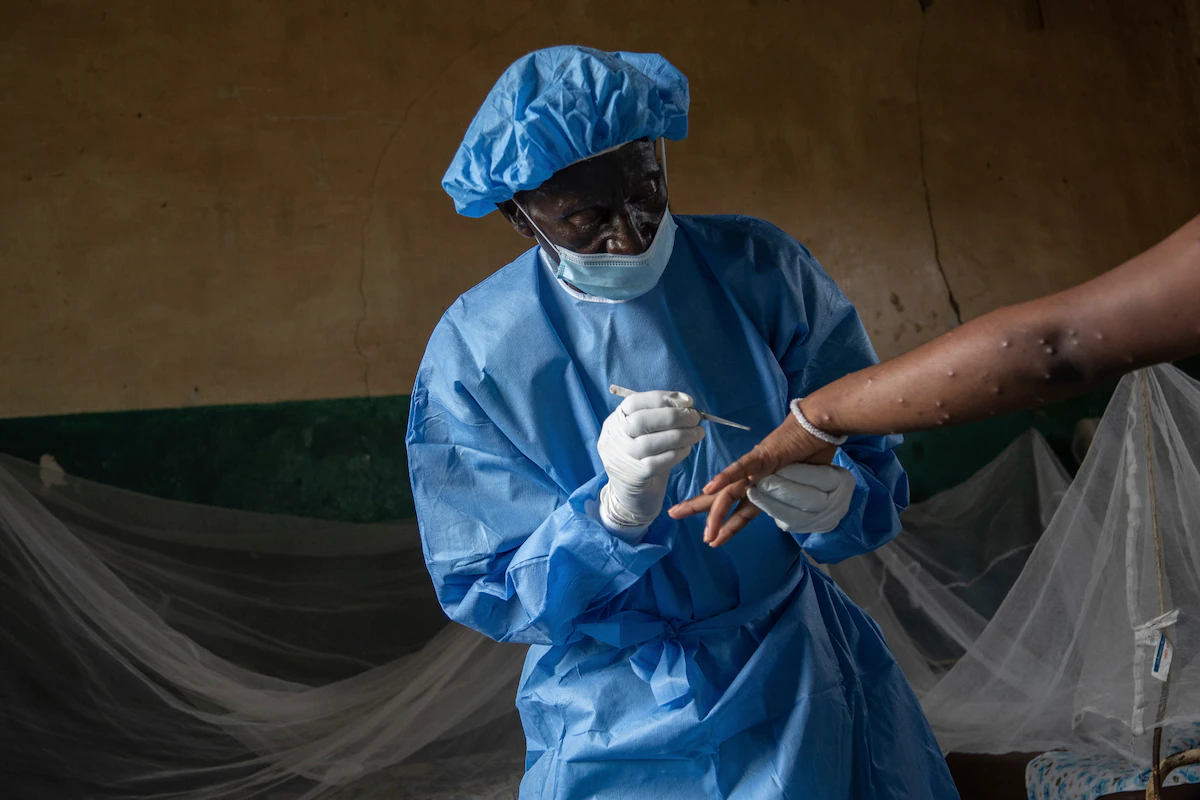In eastern Congo, Divine Wisoba mourns the loss of her one-month-old daughter, Maombi Katengey, who died from mpox, a disease that has surged in South Kivu province. Wisoba’s grief is compounded by her trauma from not attending the funeral and her deep concern for her family’s well-being. She reflects on the joy her daughter brought, which quickly turned into devastation after her unexpected illness and death.
Mpox, labeled a global health emergency by the World Health Organization, has affected over 6,000 individuals in the region. A new strain of the virus is spreading primarily through skin-to-skin contact, making it particularly concerning given the lack of resources, vaccines, and public awareness about the disease. This situation has been exacerbated by the province’s already fragile healthcare infrastructure.
Kamituga, a gold mining town and the epicenter of the outbreak has seen nearly 1,000 infections and eight deaths, including several children. The town’s transient population complicates tracking and managing the spread, with many cases traced back to its vibrant nightlife and mingling of miners, sex workers, and traders. Health officials are overwhelmed, as the number of suspected cases has skyrocketed dramatically in recent months.

Despite the WHO’s optimism about potentially halting the outbreak, locals in Kamituga are facing a dire reality. The healthcare system is stretched thin, with hospitals regularly near capacity and new cases rising alarmingly. Residents often lack essential information about mpox, contributing to its continued spread and increasing vulnerability among children and pregnant women.
Wisoba’s experience reflects the larger issue of misinformation and lack of knowledge about mpox. She was unaware of her own infection until she was diagnosed, highlighting the need for better education and resources for the community. Local health leaders are attempting to raise awareness, but face significant obstacles, including insufficient funding and materials to effectively communicate the risks and symptoms of the disease.
The government of Congo has allocated over $190 million to combat mpox, including plans for vaccine procurement. However, logistical challenges have delayed the arrival of vaccines in Kamituga, where the unpaved roads and rainy season hinder access. As health officials scramble to respond, the supply of vaccines may not meet the urgent demand from those most at risk.
Experts are also grappling with the implications of the new variant of mpox. This strain appears to be more easily transmitted, yet there is still much uncertainty surrounding its behavior and the risks it poses, especially to vulnerable populations. Many recovered patients remain confused about their potential for reinfection, leading to anxiety and misinformation.
Fear and misinformation continue to spread among the community as cases rise, with families often unaware of the symptoms that can lead to severe illness. Locals like Diego Nyago highlight the critical importance of timely medical intervention, as many children who contract the virus do so without their families recognizing the danger, resulting in preventable tragedies.
